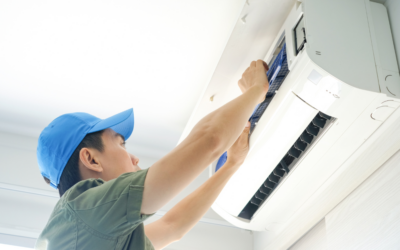Report that Fender Bender!
Winter is coming. Although I’ve always wanted to say that, the truth is with winter comes the holiday shopping season. Of course, that also means crowded parking lots and tons of “fender bender” type accidents. When there is an accident in a parking lot, it is very tempting to exchange information with the other driver, move the vehicles, and not report the accident to the police. The motivation behind not reporting such minor motor vehicle accidents is understandable regardless if it is your fault or not.
Certainly, if it is your fault, it is natural for you to not want to have the accident reported if you can potentially take care of it on your own. Typically, people will exchange insurance information, and get estimates whereby the driver that believes or acknowledges that he or she is at fault will pay for the damages. However, if you are the at-fault driver, how do you know what the cost of the repairs will be? You may be promising something to someone that you may not be able to fulfill. Worse, if you fail to get a police report and then fail to timely report the accident to your insurance company, you may now have an issue with getting coverage from your insurance company if you need them to get involved and pay for the damages.
Moreover, you have to be mindful that it is against the law to not report an accident. N.J.S.A. 39:4-130 states:
“The driver of a vehicle or streetcar involved in an accident resulting in injury to or death of any person, or damage to property of any one person in excess of $500.00 shall by the quickest means of communication give notice of such accident to the local police department or to the nearest office of the county police of the county or of the State Police, and in addition shall within 10 days after such accident forward a written report of such accident to the commission on forms furnished by it. Such written reports shall contain sufficiently detailed information with reference to a motor vehicle accident, including the cause, the conditions then existing, the persons and vehicles involved and such information as may be necessary to enable the chief administrator to determine whether the requirements for the deposit of security required by law are inapplicable by reason of the existence of insurance or other circumstances.”
The penalties are:
“Any person who suppresses, by way of concealment or destruction, any evidence of a violation of this section or who suppresses the identity of the violator shall be subject to a fine of not less than $250 or more than $1,000. Except as otherwise provided in this section, a person who knowingly violates this section shall be fined not less than $30 or more than $100.” There are no point violations.”
Significantly, N.J.S.A. 39:4-130 states plainly, “[F]or purposes of this section, it shall not be a defense that the operator of the motor vehicle was unaware of the existence or extent of personal injury or property damage caused by the accident as long as the operator was aware that he was involved in an accident.” This means that what you knew or didn’t know about the scope and severity of the accident does not make a difference.
Similarly, if you are the driver who is not at fault, you can also be in violation of N.J.S.A. 39:4-130 if you fail to immediately report the accident because the law is applied no matter who is at fault. Therefore, if you are a non-fault driver who feels bad for the other driver or believes that they will take care of the damage based on the minor nature of the same, it is wise to still report the accident.
Ultimately, all accidents should be reported.
If you are the non-fault driver, it is not because you are trying to “hurt” the other driver, but rather you are seeking to document the accident in accordance with the law. This way, you will ensure against any inaccuracies being said as to the happening of the accident. All parties are identified and the happening of the accident and potential diagram of how the cars came into contact is documented. Moreover, when a police report is made, you can immediately send it to either their automobile insurance company or yours to start processing a claim. Conversely, if the other driver thereafter makes a claim against you for property damage or personal injury, you will not jeopardize your insurance coverage by not timely and properly reporting the accident.
You should report an accident notwithstanding the potential that your insurance company may raise your rates if you are at fault for the accident, and yes, if there is a police report attached to your vehicle, it will show up on Carfax. Notwithstanding, however, this is the purpose that you have insurance, and when the time comes you should not be afraid of using it. By the same token, if Carfax reports the accident, and your vehicle loses value, you retain the right to make a diminished value claim against the at-fault driver. Please note that you have two (2) years from the date of the accident to file a personal injury complaint in Court, and six (6) years from the date of the accident to file a diminished value and/or property damage claim in Court.
For more information on our services related to Personal Injury, please click here.
To sum up, if you’re in an accident, make sure that you report it to the police. Do not move your vehicles, if at all possible, and call the police to come to the scene, investigate and properly document the accident and the parties involved. Also, it is important for you to immediately report the accident to your insurance company. This way you will be protected if you need to make a claim or if someone makes a claim against you.
If any of this happens to you, and if you are injured as a result of an accident or you feel that your car now will have less value because of this accident, please contact Abdou Law Offices, LLC at (732) 540-8840.




